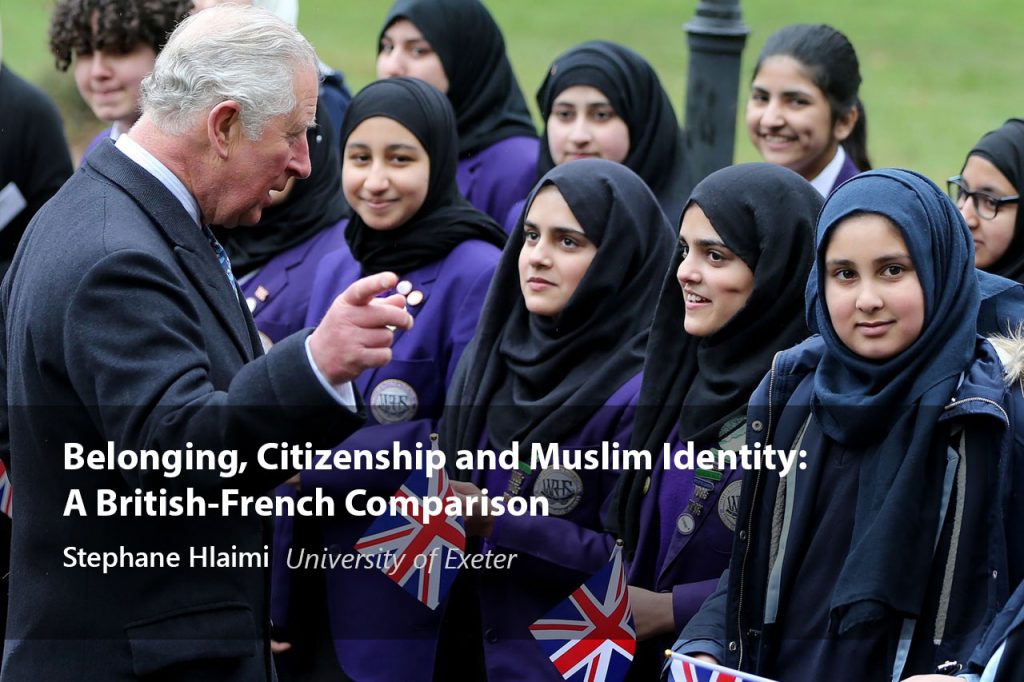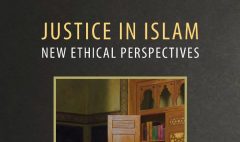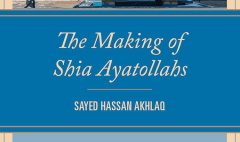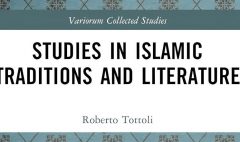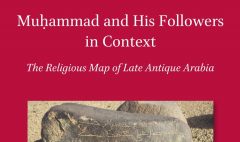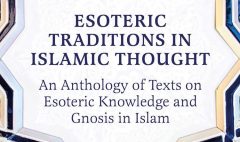PhD Thesis: “Belonging, Citizenship and Muslim Identity: A British-French Comparison”
October 30, 2022 2024-03-18 1:33PhD Thesis: “Belonging, Citizenship and Muslim Identity: A British-French Comparison”

PhD Thesis: “Belonging, Citizenship and Muslim Identity: A British-French Comparison”
PhD Thesis: “Belonging, Citizenship and Muslim Identity: A British-French Comparison”
Author: Hlaimi, S., University of Exeter
Date of Award: 2022
Qualification Level: Doctoral
Supervisor: Jonathan Githens-Mazer and Lise Storm
Abstract:
The first decades of the twenty-first century have seen a resurgence of debates on immigration, with a particular focus on Islam and its place within Western liberal societies. Are British and French Muslims citizens first? Muslims first? Or citizens and Muslims equally? This question is the starting point for this research on belonging and the connection between Britishness and Frenchness, and Muslimness. Unlike previous research, this thesis addresses the Muslim question according to the perspective of belonging. Through the exploration of the determinants of identification for French and British Muslims, this thesis assesses the articulation between French and British citizenships and Muslim identity. This thesis presents three strategies which Muslims may follow: assimilation, integration or conflict. While British Muslims are more likely to follow a cohabitations strategy, many French Muslims actualize a conflictual strategy. The question of Islamophobia is put forward by both groups as the major obstacle for a successful articulation of their identity. Islam in France appears to be the driver of a transnational construction of non-ethnic Muslim communities and an important element of belonging. This has enhanced the role of religion as a symbolic boundary that allows the inclusion of Muslims in France. For British Muslims, citizenship is held as a symbolic attachment to Britain, which Islam is described as an important source of inspiration for British values. This is particularly true for converts who cultivate and develop their experiences of socialization to better assimilate within their new community. Finally, the comparison of both French and British cases shed the light upon the crisis multiculturalism and secularism are facing. The former has been criticized by Muslims for its role in the exacerbation of securitization, and the latter is perceived by French Muslims as a new form of Islamophobia. In France and Britain, neo-secularism and a neo-multiculturalism have emerged with new tensions regarding being a citizen and being Muslim. Neo-secularism is an identitarian approach that no longer implies a neutrality of the state regarding religion, but rather a neutrality, and even an obligation of neutrality, of Muslim citizens. Neo-multiculturalism is mutating into a monoculturalism when it comes to Muslim identity, where the recognition of differences is retreating and being replaced by a more assimilationist paradigm. Accordingly, this thesis concludes that a new paradigm of articulation between Muslim identity and Western citizenship should address the Muslim question using a more inclusive rhetoric, in order to avoid the othering approach largely spread in public discourses and media 3 coverage. In particular, French secularism requires a legal and concise definition clarifying the principle of separation between religion and state. For British multiculturalism, securitization should be reassessed through the promotion of a more positive prevention of radicalization and through the closer involvement of Muslims themselves.
Source: EThOS


